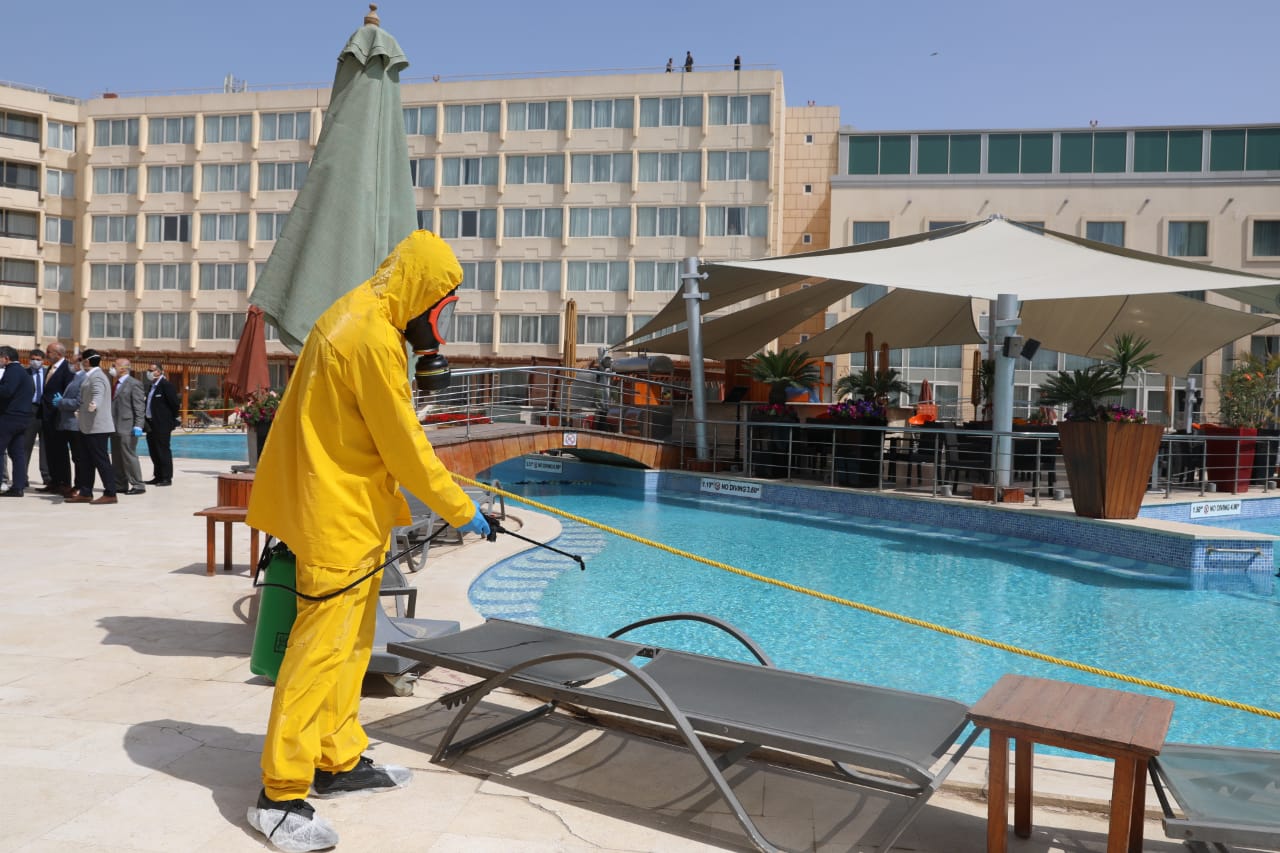
The epidemiological situation of the novel coronavirus (COVID-19) remains stable in Egypt when compared to global rates, Health Minister Hala Zayed announced.
In a Tuesday statement she said that that the global epidemiological average for the number of infections per million people reached 105, as the number of deaths per million people reached 5.1 cases.
With Egypt the number of infections reached six cases per million citizens while deaths were at 0.4 per million people, with Zayed stating this indicates the nation’s situation is stable.
Egypt on Tuesday confirmed five additional deaths and 54 new coronavirus cases, bringing the country’s number of confirmed total cases so far to 710.
Forty-six people have died from the virus in Egypt.
These newly infected cases are all Egyptian nationals who returned from abroad or were in contact with previously confirmed cases in Egypt, Health Ministry Spokesperson Khaled Megahed said, adding that seven cases left quarantine on Tuesday, bringing the total number of fully-recovered cases to 157 on Tuesday, all of whom have been discharged from isolation hospitals.
The Director of the Department of Communicable Diseases at the WHO Regional Office Evan Houten stated that the Egyptian government has been making great efforts to provide human and financial resources to contain the outbreak.
A team of WHO experts concluded its technical support mission on COVID-19 in Egypt on March 25.
“We still have an opportunity at these critical moments to combat the spread of disease more effectively before it progresses from the individual to the community level. We have agreed on multiple areas that can be strengthened and expanded, with an approach that includes the entire government and society as a whole,” Houten said.
On March 24, Prime Minister Mostafa Madbouly imposed a two-week nationwide curfew from seven pm until six am beginning on Wednesday and extended school closures an additional two weeks to fight the spread of coronavirus.
Egypt had already closed mosques and churches across the country, banned shisha at cafes, and asked non-essential stores and shops to close each evening.
Under the curfew announced on Tuesday, shops will be closed from five pm until six amduring the week, while stores will be subjected to a complete shutdown on Fridays and Saturdays.
However, the closure decisions do not include bakeries, pharmacies, grocery stores or supermarkets outside shopping centers, Madbouly said, while restaurants will be limited to home delivery only.
Cafes have been shuttered completely.
Violators of the curfew face penalties ranging from a fine of LE4,000 to imprisonment.
Cairo police and local authorities have also launched a crackdown on street vendors at the popular Ataba and al-Mosky markets, following orders from Cairo Governor Khaled Abdelaal to prevent overcrowding in outdoor marketplaces amid the virus outbreak.
Meanwhile, museums and tourist sites across the country also closed down on March 23 and are currently being sanitized.
Madbouly had issued a resolution on March 17 to reduce the number of employees in the public sector, instructing work from home whenever possible, while Egypt’s cabinet is currently mulling establishing a crisis management fund to support workers in the informal economy who have been impacted by the coronavirus and harsh measures to control its spread.
President Abdel Fattah al-Sisi also previously announced a LE100 billion comprehensive plan to counter the outbreak and its negative economic consequences, while the Central Bank of Egypt has adopted various measures to cushion the economy as harsh measures are implemented to contain the outbreak.



